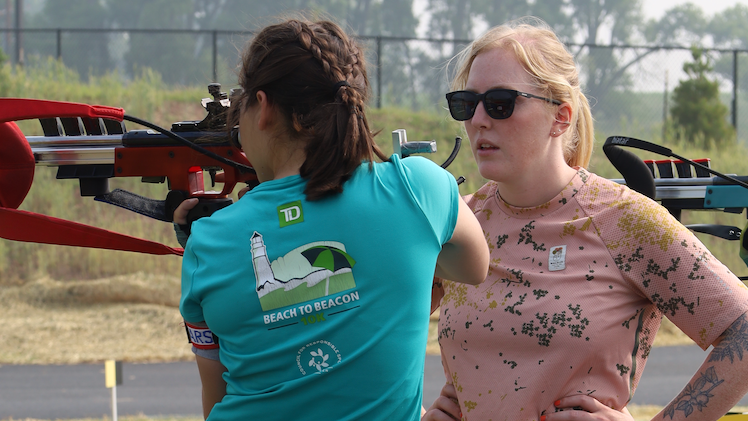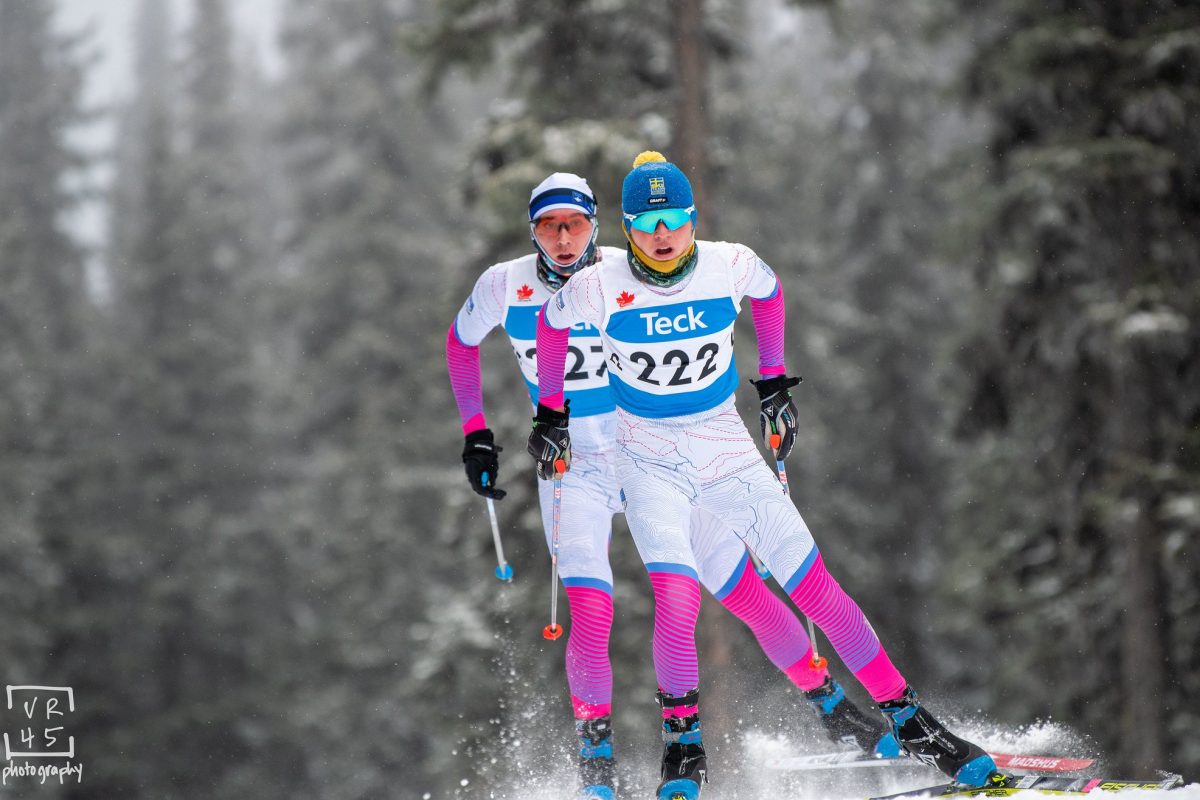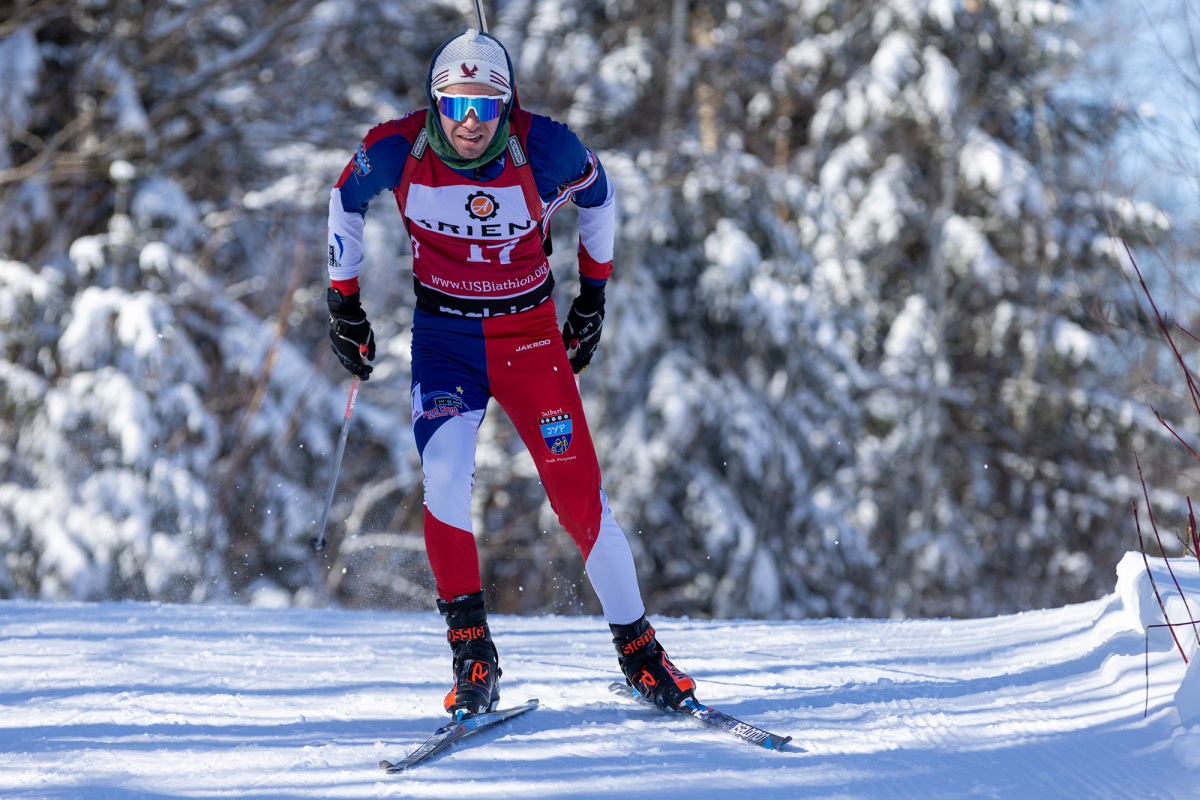
Both Kaisa Makarainen of Finland and Björn Ferry of Sweden have won plenty of races before – including World Championships and Olympic gold, respectively.
But their win in the team competition of the Champion’s Race in Moscow on Saturday was almost certainly their most unusual.
For one thing, the pair teamed up despite their different nationalities, which is obviously not possible on the World Cup where they spend most of their time. Only at less strict competitions such as this and the Schalke Challenge in Germany are mixed teams encouraged.
More interestingly, though, Makarainen and Ferry didn’t exactly have the most conventional pre-race preparations.
“I didn’t expect to be able to win after a good time at a nightclub last night…. I allowed myself some white wine, so much so that I didn’t feel very good this morning,” Ferry told the Russian Biathlon Union. “It was quite tough.”

Makarainen said that she had gone clubbing with Ferry because her plane came in late and “there was nothing else to do.”
Ferry later tweeted that the reports of him being hung over were exaggerated and that he’d mostly gone to bed “a little late.”
For biathletes, these races are something of a victory lap, so in a way it seemed appropriate that the athletes be rewarded for enjoying themselves. Even more so than for skiing, the IBU World Cup season is strictly structured, with nine weekends of racing, men and women racing three times each, and a long World Championships every year. Once the season starts, it’s an exhausting journey, and biathletes don’t have much time to dabble along the way, especially if they are concerned about the “total score.”
But now that the World Cup season is over, the athletes finally have a little bit of breathing room – and the chance to do more different races. Many countries have held their national championships in the last several weeks, and now venues in Russia are hosting competitions for the world’s best, luring them not only with the promise of fun but also substantial prize purses, in this case over $120,000 in total.
The invitation-only “Champions Race” featured an unusual format, and one completely different than in 2011, when it was held in an indoor stadium. This year, organizers trucked in snow to line 1.2 kilometers of paths in an outdoor park and set up a temporary shooting range outside. They may have regretted their decision when rain began pouring down Saturday morning, but fans were relatively undeterred.
Both men and women competed in mass start races, and then were allowed to choose partners for the two-person relay based on their order of finish.
In the women’s mass start, both Marie Dorin Habert of France and Olga Zaitseva of Russia shot clean, but Habert was able to ditch Zaitseva on the final lap and take the win by eight seconds. Four seconds later, Olga Vilukhina of Russia outsprinted Anastasiya Kuzmina of Slovakia for third place after each collected a single penalty.
Vita Semernko of Ukraine and Daria Domracheva of Belarus were fifth and sixth with one penalty apiece, followed by Synnøve Solemdal of Norway and Makarainen with three penalties each.
In the men’s race, all the competitors missed at least one target. Newly crowned world champion Jakov Fak of Slovenia took the win by eight seconds over Anton Shipulin of Russia, while the most exciting race was for third place a few seconds later. As they have so many times this season, Norway’s Emil Hegle Svendsen and France’s Martin Fourcade sprinted to the line, with Svendsen crossing first this time around. Ferry finished fifth and Andreas Birnbacher of Germany sixth.
The race that everyone came for, though, was the mixed relay, and the excitement began with the drawing of names.
Not surprisingly, Habert picked Fourcade as her partner; her French teammate won the overall World Cup this season as well as several World Championship titles. In addition, they had paired up for the win in Moscow last season.
“Last year I won the mixed relay at the Race of Champions with Marie,” Fourcade told the press. “Right then we decided that if Marie was invited back to Moscow we’d like to race it together… it was a joke!”
As the men’s winner, Fak chose Domracheva as his partner. The second woman, Zaitseva, chose Ole Einar Bjørndalen of Norway, joking later that she did so because “we are both kind of old.” Vilukhina chose Svendsen, allowing Kuzmina – a native Russian who switched her citizenship – to pair up with her brother, Shipulin.
“Ever since we heard of it, Anastasiya and I dreamed of winning the Champion’s Race,” Shipulin told the press.
But in the end it was Ferry who outsprinted Shipulin to the line by just a half second, leaving the siblings with silver.
“I fought like a monster on the last lap,” Ferry said. “I’m very happy to win.”
“He’s a real monster,” Shipulin agreed. “But next year I’ll avenge him.”
As for Makarainen, the win was both a surprise and completely fitting.
“I was expecting to have a lot of fun at the race, but not to win,” she said. “But when I paired up with Ferry, I realized we were going to win. I think it’s a good omen to be with the Swedes.
“Now we should convince the IBU to have a mixed relay on the World Cup, not just with mixed genders, but nationalities,” she joked. “Then I’d always choose a team of Swedish biathletes.”



